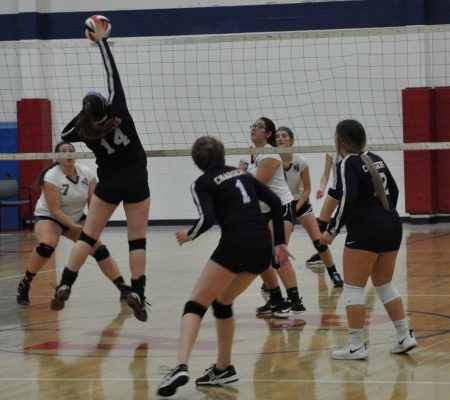Imagine a world without major sports. No cheering crowds, no nail-biting finishes, and no underdog stories to inspire us. It’s hard to picture. That’s because sports have become an integral part of our lives.
At its core, sports can be defined as organized physical activities that involve structured rules played for various purposes, including recreation, competition, and entertainment. They encompass various sports activities, from traditional sports like soccer, basketball, and tennis to extreme sports, e-sports, and even chess. However, Central Christian Academy believes that reducing the educational benefits of sports to mere physical activities and competition would be a grave injustice. A well-balanced education is incomplete without emphasizing the importance of sports shaping the overall experience of students.
Ready to give your child a well-balanced education?
Historical Significance
The historical significance of playing sports goes back centuries, meshing into human civilization. In ancient times, sports were not just games; they were rituals, celebrations, and displays of physical prowess. The Olympic Games, dating back to ancient Greece, are a testament to the enduring importance of sports throughout history.
Over the centuries, the importance of sports has played a pivotal role in society. They’ve been used as a means of settling disputes, a channel for diplomacy, and even a symbol of national pride. Sporting events like the FIFA World Cup and the Olympic Games bring nations together like no other, a great way of transcending political boundaries and fostering a sense of unity and harmony.
Physical Health Benefits
The next time you or your kid is looking for a fun and effective way to stay in shape, remember that sports offer a holistic approach to physical health that keeps you engaged, active, and in your best shape ever.
Cardiovascular Fitness
Sports, whether played competitively or just for fun as a physical activity, are a powerhouse for cardiovascular fitness. Engaging in sports improves heart health by strengthening the heart, reducing resting heart rate, and enhancing circulation. This reduces the risk of heart disease and supports overall cardiovascular well-being.
Playing sports can also contribute to healthy cholesterol levels, lower blood pressure, and a reduced risk of developing life-threatening conditions like atherosclerosis.
Muscle Development
Research shows that sports have a profound impact on muscle development, helping you build strength, endurance, and flexibility. Sports involve various muscle groups, promoting balanced muscle development, increased strength, endurance, and lean muscle mass.
They also enhance coordination and balance, reducing the risk of injury and contributing to physical development and a more resilient body. Sports push your muscles to adapt and grow.
Weight Management
Sports make exercise enjoyable, burning calories while boosting metabolism. Regular participation in sports is a great way to aid in weight management and improve body composition. Moreover, sports promote a sense of discipline and structure. Consistent participation in a sport encourages a healthier lifestyle and dietary choices. As athletes recognize the physical benefits, the sports benefits at an early age as well as the importance of physical health and a healthy diet in fueling their bodies for peak performance.
Mental Health Impact
Ultimately, sports are a haven for your emotional well-being. Playing sports can generate joy, boost self-esteem, teach resilience, and provide a valuable emotional outlet. They’re more than just games; they’re a recipe for a happier, more emotionally balanced Christian life.
Stress Reduction
Engaging in sports releases endorphins, promoting happiness and relaxation. The act of focusing on the game at hand also helps quiet the noise in your mind. Regular physical activity pushes worries and anxieties to take a backseat as you immerse yourself in the present moment.
This mindfulness, cultivated through sports, can be a powerful antidote to the stressors of modern life. Team sports offer a sense of belonging and a social support system that can be invaluable in times of stress.
Cognitive Benefits
Sports enhance focus, problem-solving, and decision-making skills which can translate into improved attention and productivity in other areas of your life.
They instill discipline and structure, improving time management, and goal-setting abilities which hone your organizational skills and boost your cognitive efficiency. In essence, sports sharpen the mind for success in sports and life.
Emotional Well-being
Playing sports can help boost self-esteem and a sense of accomplishment through victories while teaching resilience in the face of defeat. They provide an emotional release valve and a sense of belonging that promotes emotional balance and well-being.
Sports are more than just games. For many people, the emotional benefits of physical activity are a foundation for a happier, more emotionally balanced life.
Social Development
Sports can help children learn the art of teamwork, the power of effective communication, and the essence of leadership. At Central Christian Academy, students can cultivate these skills on the field. These skills become invaluable assets that help them thrive in all aspects of their life, from their relationships to their career. See how CCA compares to other private schools in Indiana.
Team Building
Sports events teach the value of cooperation, trust, and unity among individuals with diverse backgrounds and strengths. Lessons learned about teamwork are one of the benefits of sports that extends to other areas of life, making individuals better collaborators and team players.
Communication Skills
Sports develop non-verbal communication, such as body language and gestures, as well as the ability to convey thoughts clearly under pressure. These skills are transferable to professional life, enhancing leadership and teamwork.
Leadership Skills
Leadership in sports involves not just making decisions but also inspiring and setting an example for teammates. The leadership skills cultivated in sports extend to personal and professional life, making individuals more effective mentors and guiding forces in various endeavors. Playing sports is one of life’s greatest teachers, offering valuable social development opportunities beyond the field.
Academic Performance

As previously discussed in mental development, playing sports helps to sharpen students’ concentration, fine-tune their time management, and enhance their learning abilities. Here’s a recap of the importance of sports in academics in a school’s curriculum:
- Improved Concentration: Participation in sports hones concentration skills, fostering the ability to focus on academic tasks and learning with greater precision.
- Time Management: Sports teach structured time management, helping individuals optimize their schedules and enhance efficiency in academic work, including completing assignments and meeting deadlines.
- Enhanced Learning Abilities: Sports stimulate critical thinking, problem-solving, and adaptability, transferring these cognitive skills to academic pursuits. Additionally, sports cultivate resilience, enabling students to overcome setbacks and approach academic challenges with determination.
Ready to give your child a well-balanced education?
Character Building
The importance of sports comes through in the pivotal role it plays in shaping character, fostering qualities of strength, integrity, and determination that extend beyond the field and influence various aspects of an individual’s life. Here’s how this can accomplished through sports:
- Discipline and Perseverance: Character building through sports is a transformative journey where discipline and perseverance are instilled by teaching the value of hard work, resilience, and growth.
- Sportsmanship: Sportsmanship emphasizes fair play, respect, and integrity, both on and off the field, influencing one’s character and approach to life.
- Goal Setting: Goal setting in sports helps individuals dream big, create achievable steps, and experience the taste of accomplishment, translating these skills to academic, career, and life aspirations.
Cultural Impact
Culture is important to Central Christian Academy, our strong faith intertwines with our curriculum. This holds our students to a higher standard with a balanced moral education. Sports have been an agent of social change. Sports have the unique ability to highlight social issues, challenge norms, and inspire movements for equality and justice.
Sporting Events and Unity
Sporting events like the World Cup and the Olympic Games, create unity by bringing people from diverse backgrounds together to share a common passion. The cheers, chants, and camaraderie at such sports events foster a sense of belonging and pride, transcending language and geographical boundaries. They also promote international cooperation and diplomacy.
National Identity
Sports are intertwined with a nation’s identity, reflecting its values and history. Think of how the “Haka” dance embodies the spirit of New Zealand, or how soccer symbolizes Brazil’s love for the beautiful game. National sports heroes become cultural icons, and victories or defeats of national teams shape a nation’s self-identity. Sports showcase cultural diversity within a nation, exemplifying the cultural tapestry of a country.
Global Influence
Sports possess global appeal and serve as a universal language, reaching audiences worldwide. They facilitate diplomacy, cultural exchange, and international friendships. Athletes have used their platforms and the importance of sports to champion social and political causes, leaving a lasting global impact. Think of Jackie Robinson breaking the color barrier in baseball, Muhammad Ali’s powerful stand against the Vietnam War, or Jesse Owens, who defied racism at the 1936 Olympics, and used their platforms to champion social and political causes, leaving a lasting impact on the world.
Role of Education
Indiana boasts a diverse educational landscape with public, private, charter, and magnet schools. The role of education in sports is a dynamic one. Education and sports are intertwined, shaping individuals and communities in profound ways.
Incorporating Sports in Curriculum
Education can integrate sports into the curriculum, offering structured physical activity in education classes and academic subjects related to sports science. This approach fosters physical and mental health development, instills life skills, and deepens the understanding and appreciation of sports.
Scholarships and Opportunities
Education opens doors to athletic scholarships, allowing student-athletes to pursue higher education while excelling in sports. These scholarships provide life-changing opportunities for both academic success and sports achievements, enabling athletes to realize their dreams.
Educational Outreach Programs
These programs serve as a bridge connecting education and sports to underserved communities. They offer coaching, facilities, and support to young talent, promoting values like sportsmanship and discipline alongside education. Educational outreach programs that play sports have a crucial role in character building and personal development.
Long-Term Health Impact
Sports are the threads that weave a picture of lifelong fitness, disease prevention, and graceful aging with a testament to the enduring power of an active, healthy life.
- Lifelong Fitness Habits: Engaging in sports fosters lifelong fitness habits and healthy eating habits becoming an integral part of one’s lifestyle and promoting vitality as people age. Sports keep your muscles toned, your heart healthy, and your bones strong. The result? A longer, more vibrant life filled with the joy of movement.
- Preventing Chronic Diseases: Research also shows that sports act as a protective shield against chronic diseases by maintaining cardiovascular health, reducing the risk of heart disease and diabetes, and promoting overall well-being. The rigorous workouts lower your risk of heart disease by reducing blood pressure, cholesterol levels, and triglycerides. They also help maintain a healthy weight, reducing the risk of obesity and related health issues.
- Aging Gracefully: Sports contribute to graceful aging by preserving muscle mass, flexibility, and cognitive function. They reduce the risk of falls and fractures, ensuring that you stay on your feet and mobile. The mind, too, benefits from sports, with enhanced cognitive function and a reduced risk of neurodegenerative diseases like dementia. They also provide social support, ensuring a fulfilling and active later life.
Importance in Youth Development
Sports teach life skills, promote academic and athletic balance, and thrive on the support of parents who cheer, guide, and inspire. Youth sports are where dreams take root, where potential is nurtured, and where young athletes forge the path to a brighter future.
Building Life Skills
“Sports help teach young athletes life skills such as perseverance, teamwork, self-discipline, goal setting, time management, and resilience. Balancing school, practice, and games teaches young athletes to allocate their time wisely. This is a skill that carries over to academic and professional pursuits and is also essential for success in life.
Academic and Athletic Balance
Balancing sports and academics instills discipline, time management, and responsibility in young athletes. The skills acquired in sports often enhance academic performance and provide a healthy outlet for stress. Balancing sports and academics also reinforces the importance of responsibility and teaches them the value of commitment and consistency.
Parental Support
Parents are crucial in a young athlete’s journey, offering support, encouragement, and guidance. They become role models, fostering a love for the game and promoting personal growth, while striking a balance between support and pressure. Youth sports are where dreams are nurtured, potential is realized, and the path to a brighter future is forged. Here are more ways Central Christian Academy empowers parents to engage in a student’s education.
Summary
Sports are an integral part of human physical and mental health, offering a multitude of benefits. They promote physical health, mental well-being, social development, and character building. Additionally, the importance of sports can be found in its cultural impact, ability to foster unity, how it helps shape national identity, and how it exerts global influence.
When it comes to this, we at Central Christian Academy maintain that sports are crucial to youth development. Sports build essential life skills, encourage academic and athletic balance, and thrive on parental support. Our lasting message is that sports are a powerful force for personal and societal well-being.
Ready to give your child a well-balanced education?










